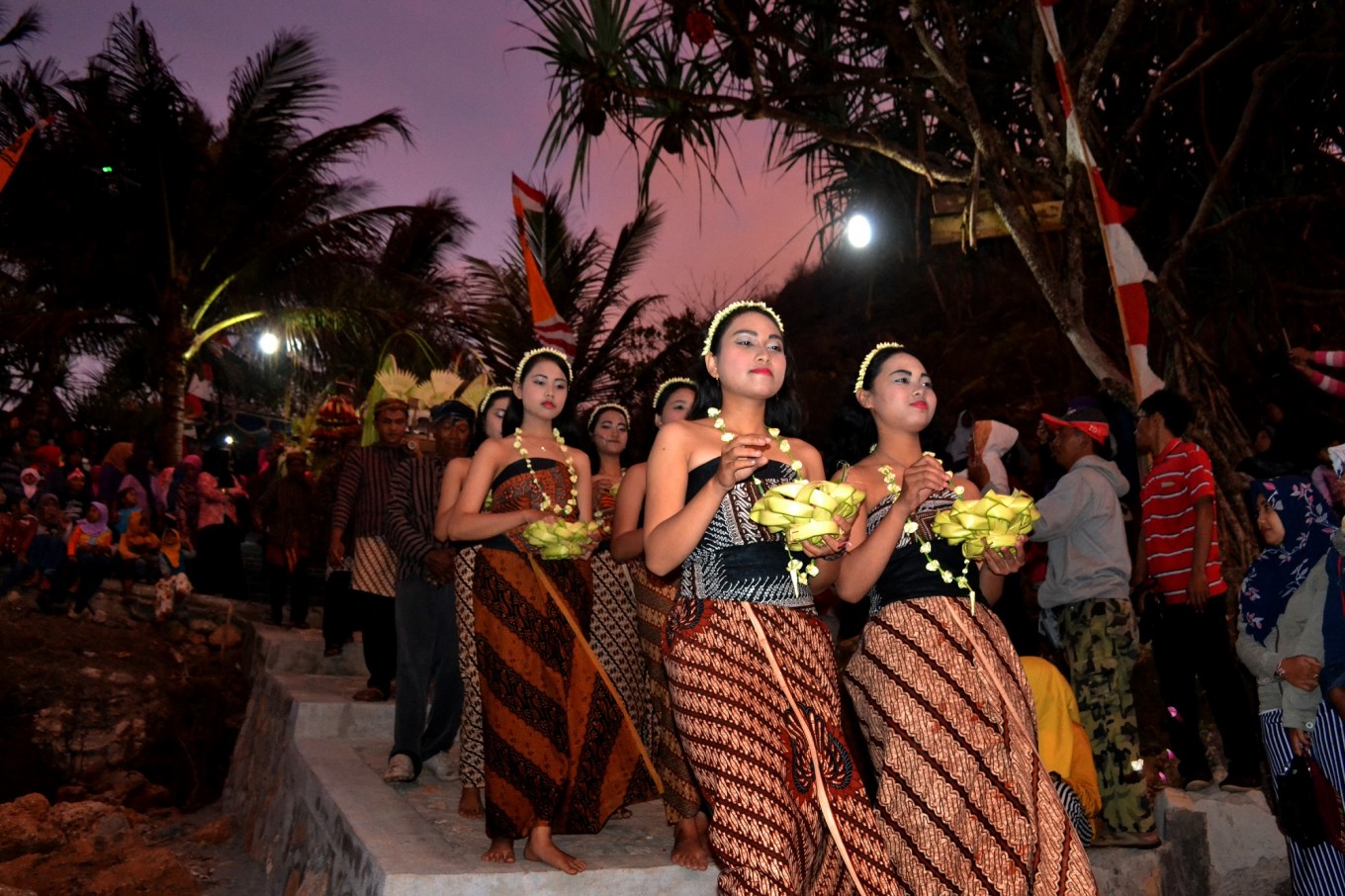Popular Reads
Top Results
Can't find what you're looking for?
View all search resultsPopular Reads
Top Results
Can't find what you're looking for?
View all search resultsWonogiri residents observe Islamic New Year with Javanese rituals
Change text size
Gift Premium Articles
to Anyone
R
esidents of Wonogiri in Central Java observed the Islamic New Year with a Javanese ceremony conducted on Sembukan Beach on Monday.
A Javanese tradition, the labuhan ageng ceremony, is a ritual of prayer that ends with sea offerings. It symbolizes balance in life, as what has been given to human beings is given back to nature.
Sembukan Beach is located in Paranggupito, a district at the foot of Mount Sewu, around 65 kilometers from Wonogiri’s town center. It is considered sacred by the residents, as a myth says this is where Raden Mas Said, the first king of Mangkunegaran, would go for spiritual meditation. His descendent, Mangkunegara the VII (1916–1944), followed in his footsteps by visiting Sembukan Beach every malam satu Suro, or the eve of the first day of the Javanese month of Sura. The ritual is now carried out by residents around the beach.
The ceremony began with the traditional kethek ogleng dance of Wonogiri, which depicts the lively nature of a monkey. It was inspired by the story of Endang Rara Tompe in the Panji tales, ancient Indonesian literature, where the daughter of the Jenggala Kingdom went in disguise into the forest and made friends with a monkey. Residents gathered on the beach enjoyed the frisky acts of the monkey, presented by a dancer who performed acrobatic acts and impersonated a monkey’s behavior.
The ceremony peaked with a parade from Paranggupito to Sembukan Beach, with residents carrying offerings and gunungan, mountain-shaped piles of agricultural produce, fruit and vegetables. Relatives of the Mangkunegaran Palace and local administration officials walked alongside Paranggupito residents. They were welcomed by gamelan music and the scent of incense upon entering Sembukan Beach.
The parade participants then prayed on the beach, in gratitude and in the hope of a better life, while several others brought offerings. During sunset, ceremony participants lighted up torches upon the Sembukan cliff as a sign of entering the new year. In the Javanese calendar, a new day begins when the sun sets in the west.
Read also: Javanese New Year parade in Malang village celebrates religious diversity
The ceremony also attracted hundreds of participants from neighboring towns, such as Pacitan, Surakarta and Sukoharjo.
Sabdo Gustiono, who came from Pati, said this was his sixth time observing the ceremony. “Labuhan ageng holds special meaning for the Javanese, as a means to preserve culture and to remind ourselves of our ancestors’ wisdom,” he said. “In Javanese culture, the wisdom comes in symbols, such as the ones featured in this ceremony. So, more than just a ritual, this is where the younger generation can learn about their heritage.”
Afterward, there was a show of fireworks and a shadow puppet performance, which lasted until the wee hour of the morning. The commemoration of Sura in Wonogiri will commence with a soul-cleansing ritual and the cleansing of sacred items and ancient weapons in the Gajah Mungkur dam. (wng)











